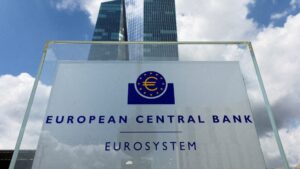Energy savings targets and reducing household energy costs are set to be achieved through the so-called “Energy Efficiency Obligation Scheme” now in effect in our country. Under the new measures, energy companies are required to implement energy efficiency improvement actions in residential buildings as well as transportation. Specifically, the “Exoikonomo” measures require electricity and natural gas suppliers and distribution network operators, as well as petroleum product trading companies, to implement energy saving measures.
Particularly in the first phase of the program, the new measures primarily concerned informational actions. However, from now until 2030, savings requirements and expectations are rising higher, with actions expanding to financing more tangible interventions such as insulation, new heating/cooling systems, high-energy-efficiency windows and frames, among others by the companies.
“Exoikonomo”: Accelerating investments
It should be noted that the obligation scheme is included in the National Energy and Climate Plan (NECP) as a key tool for achieving energy savings targets.
According to the new, revised NECP, the Energy Efficiency Obligation Schemes will take on 24% of the total cumulative target for the 2021-2030 period. That is, out of the 11,251 thousand Tons of Oil Equivalent (ktoe) cumulative target, energy companies must cover 2,698 (compared to 20% of the 7,299 ktoe target according to the previous NECP).
In this context, the Ministry of Environment and Energy will soon proceed to revise the obligations set for each company to take into account the new higher NECP target. Also, according to information, it will be examined whether the obligation scheme can be combined with the new policy announced by the government for restructuring “Exoikonomo” programs to reduce bureaucracy, accelerate investments, and more actively involve Energy Service Companies (ESCOs). These are companies that undertake the implementation of energy saving investments in homes and are compensated by collecting the benefit that property users have from reduced energy bills.
CRES: Energy efficiency improvement measures for the residential sector
The Centre for Renewable Energy Sources (CRES) has been appointed as administrator of the Energy Efficiency Obligation Scheme, which conducts an annual review of actions implemented by obligated companies (settlement has been completed for the period up to 2023 so far).
CRES has also issued a list of indicative energy efficiency improvement measures accepted under the Obligation Scheme framework, which for the residential sector include among others:
- Insulation (building envelope – walls – attic/roof/floor)
- High energy efficiency windows/glass panels
- Heating system pipe insulation
- Energy-efficient heating systems
- Thermostats and thermostatic valve controllers for radiators, timers
- Heat pumps
- Energy-efficient space air conditioning systems
- Solar thermal collectors for hot water supply or heating and cooling assistance
- Energy-efficient washing machines and other white goods
- Energy-efficient light bulbs
- Smart lighting systems




